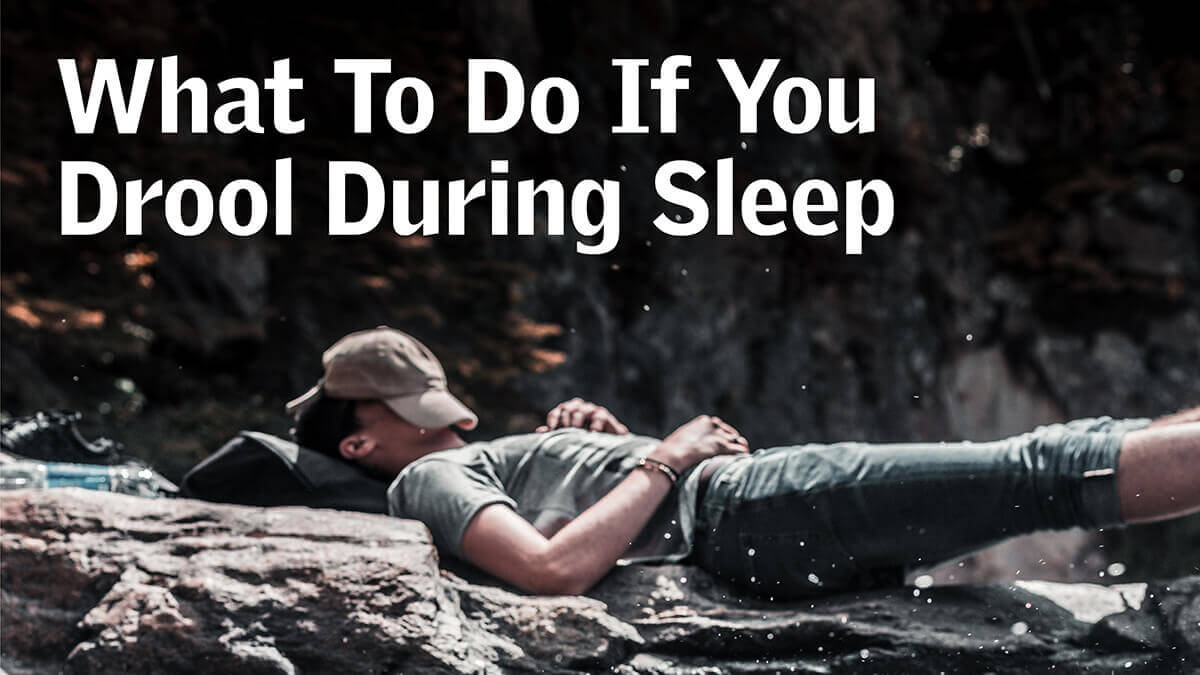If you drool when sleeping, you may wake up to find that your pillow is wet, or perhaps you wake up in the middle of the night with a dry mouth or difficulty breathing. There can be several reasons for drooling during sleep, as well as solutions for the problem. In some cases, drooling while sleeping is just a minor inconvenience, whereas in other instances, it could indicate an underlying health problem.
- Why Do I Drool So Much When I Sleep?
- How to Stop Sleep Drool
- Getting a Good Night’s Sleep When You Drool
Why Do I Drool So Much When I Sleep?
So, you might be wondering, “Why do I drool when sleeping?” It turns out that there are several potential answers. As experts from Penn Medicine explain, allergies and infections are common causes of sleep drooling. This is because when the body detects a toxin, it produces saliva to flush it out. This means that if you have seasonal allergies, you may experience drooling during sleep at certain times of the year. If you notice that itchy eyes and a runny nose are accompanying your drooling, there’s a pretty good chance you’re dealing with allergies.
Infections, such as the common cold, can also lead to drooling at night. When you’re congested from a cold or related infection, your airways become inflamed, leading to extra drainage which can result in drooling. If you can’t breathe through your nose, mouth breathing becomes a backup option, which makes it possible for the drool to escape.
Other reasons for drooling in sleep include:
- Sleep Apnea: This condition occurs when your airway is completely blocked at night, and you experience pauses in your breathing. These pauses in breathing throughout the night can lead to extra saliva production, as well as drooling.
- Medication use: Sometimes, medications like psychiatric drugs can increase saliva production and cause drooling at night.
- Difficulty swallowing: If you have a neurological condition like ALS, which makes it difficult to swallow, you may experience drooling in your sleep. Having a sore throat from an illness like strep throat can also lead to difficulty swallowing and cause you to drool at night.
- Sleep position: Sleeping on your side or stomach makes it more likely that excess saliva will slip out of your mouth while you’re sleeping, simply because of the effects of gravity.
- Sleep bruxism: This condition, which involves clenching and grinding the teeth during the night, can lead to drooling. If you wake up with jaw pain and tend to feel unrefreshed, sleep bruxism could be the cause of your nighttime drooling.
How to Stop Sleep Drool
As with just about anything else in life, the solution for sleep drool depends upon the underlying cause. If it’s something as simple as allergies or a cold, you can take over-the-counter medication to help with symptoms like congestion and runny nose that may be making it difficult to breathe at night. If allergies are ongoing, you might consider seeing your doctor for prescription medication, or asking for a referral to an ear, nose, and throat specialist.
In some instances, such as the case of strep throat, you may have to wait for symptoms to pass, and you will notice that drooling gets better once the infection runs its course. In other cases, such as an ongoing health problem, it’s in your best interests to consult with a doctor to discuss your symptoms and possible solutions.
If you think sleep apnea may be to blame, it’s especially important that you see a doctor, as untreated sleep apnea can lead to serious problems, including heart attack, diabetes, cancer, and mental health problems. If sleep apnea is causing you to drool at night, a doctor may prescribe a mouthpiece or nighttime breathing device to help you breathe better at night.
It’s also a good idea to see a doctor if you have jaw pain, or if your bed partner mentions that you grind your teeth at night. A doctor can prescribe medications to help manage the condition. When bruxism is treated, it may put a stop to nighttime drooling as well.
Getting a Good Night’s Sleep When You Drool
If you’re struggling to stay asleep at night because of drooling in your sleep, it’s no surprise. After all, it’s not comfortable to sleep in a puddle of saliva. While you’re looking for a lasting solution for drool when sleeping, you might consider some quick-fix strategies, like using hypoallergenic sheets or a humidifier to help with allergies.
You may also consider sleeping with a cooling bamboo weighted blanket to keep you more comfortable throughout the night, so you can get some deep, refreshing sleep. If you think a weighted blanket might help with sleep issues, Aricove offers a popular weighted blanket of 12 lbs for adults weighing around 120-145 pounds, as well as additional weights to meet each individual need. A cooling weighted blanket from Aricove is naturally moisture-wicking, and it provides weighted blanket therapy via deep touch pressure to relax the body for a night of sound sleep, even if you do drool.


 United States (USD $)
United States (USD $)